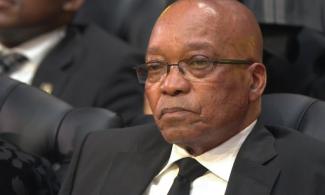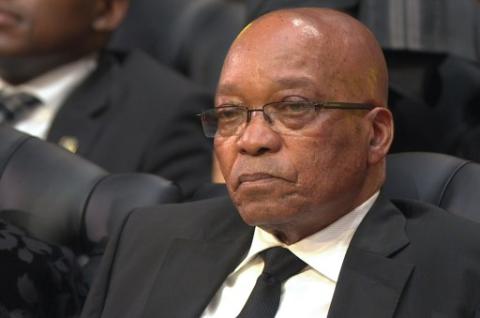
Mr. Falana warned that if the xenophobic attacks continue, he would be left with no option but to seek legal redress from the African Commission on Human and Peoples' Rights.
Human rights lawyer Femi Falana (SAN) has called on President Jacob Zuma of South Africa to ensure that perpetrators of anti-foreigner attacks in his country are identified and prosecuted. Mr. Falana also requested the South African President to adequately compensate victims of the attacks.
The calls were made in a letter he addressed to Mr. Zuma. Dated 9 March, Mr. Falana’s letter stated that since 2008, xenophobic violence and other criminal acts have continued across South Africa, claiming lives and leaving victims traumatized through displacement, displacing tens of thousands of people and leaving countless victims injured and robbing them of their property. Mr. Falana warned that if the xenophobic attacks continue, he would be left with no option but to seek legal redress from the African Commission on Human and Peoples' Rights.
While acknowledging that some arrests have been made, Mr. Falana noted that many perpetrators are yet to prosecuted, a situation amounting to denial of justice for the victims and a breach of their internationally recognized right to an effective remedy and reparations. The situation, added the lawyer, has resulted in a recurrence of more vicious anti-foreigner violence in South Africa.
“We believe that it is the failure of your government to bring perpetrators to justice and protect the victims of the xenophobic attacks that has resulted in a vicious cycle of attacks and impunity. These xenophobic attacks and violence are not only human rights violations but also criminal acts, and the persistent failure to proactively address the problems is a serious affront to the rule of law, and directly breaches your government’s international human rights obligations including under the African Charter on Human and Peoples’ Rights, particularly Article 12 on the right to movement,” said Mr. Falana.
He further stated that free movement is crucial for the protection and promotion of human rights and fundamental freedoms.
“Article 12 of the Charter guarantees freedom of movement in the broadest sense and expressly prohibits mass expulsion, a recurring problem in South Africa under your watch. We also argue that the exercise of sovereign power by a state to expel non-nationals, who are legally admitted into its territory must follow due process and be manifestly legal and comply with international standards,” argued Mr. Falana.
He noted that the African Commission on Human and Peoples’ Rights considers large scale expulsion as a special threat to human rights.
“Therefore, Article 12 imposes an obligation on your government to secure the rights protected in the Charter to all persons, including Nigerians and other Africans within your country’s jurisdiction. Such obligation is breached when victims are denied the opportunity to be heard regarding the decision to expel them, either prior to or after their expulsion,” he contended.
